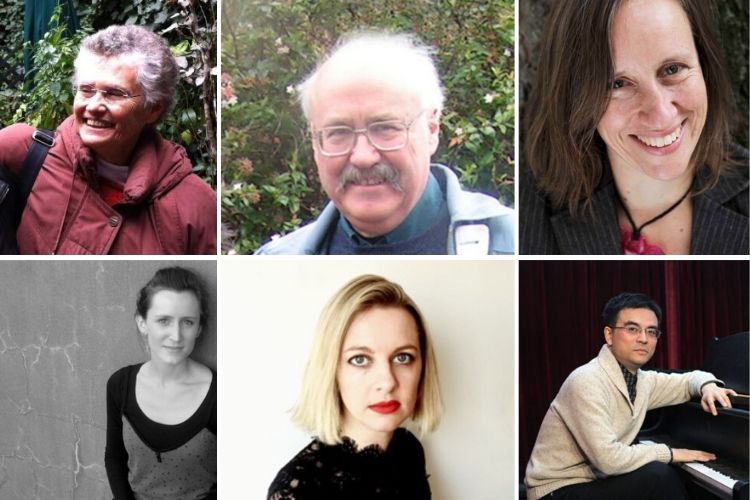Many composers from Aotearoa New Zealand live abroad, and we’re checking in to ask how the COVID-19 Pandemic is affecting them in their country of residence. Keep an eye on this space as more composers share their experiences.
The composers currently featured include Maria Grenfell, Fritha Jameson, Gao Ping, Mark Smythe, Miriama Young, Nigel Keay, Kit Powell, Richard Bolley, Neville Hall, Gemma Peacocke, Annea Lockwood, Lyell Cresswell, Juliet Palmer, Celeste Oram, Jeroen Speak. In response to this article composer, Ross James Carey wrote Xinzheng Couplets. Ross currently lives in Xinzheng, Henan, China.
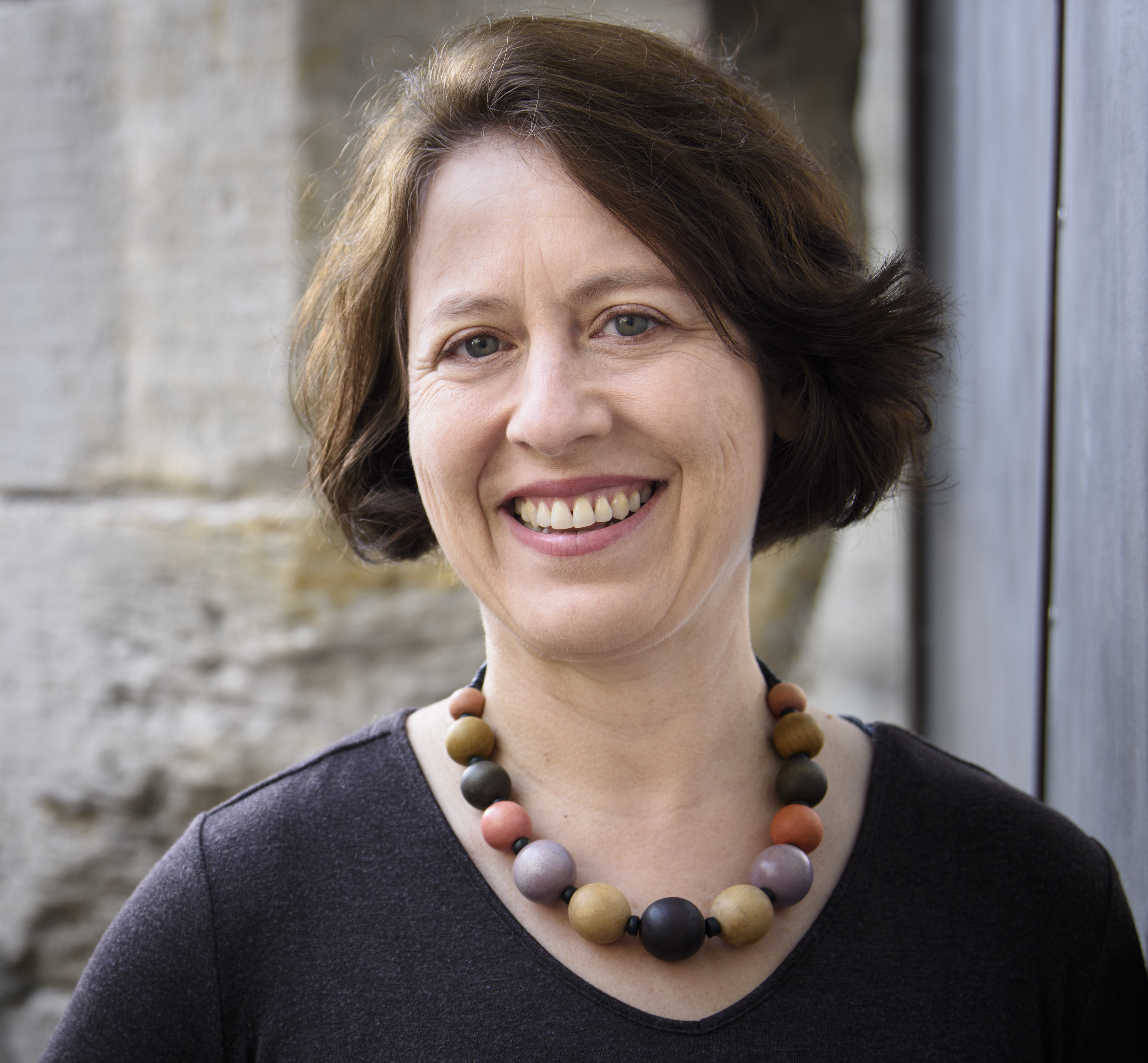 Photo Credit: Anthony McKee
Photo Credit: Anthony McKee
Maria Grenfell: Hobart, Tasmania, Australia
What is the current situation in your country regarding the COVID-19 Pandemic?
I live in Hobart, in the south of Tasmania. I am an Associate Professor and coordinator of composition at the University of Tasmania Conservatorium of Music, a full-time academic job.
We are on lockdown across Australia. In Tasmania, we are permitted to leave the house only to go to work if we cannot work from home, to shop for essentials, exercise outdoors, attend medical appointments, and to provide compassionate care for family members. There are a lot of specific rules and dos-and-don’ts across the country which have been met with confusion and misunderstanding.
We ceased all face to face teaching in mid-March, teaching online from home since then. I am very thankful to have an income and am enjoying being at home with my family. I have had some experience putting a course online so it hasn’t been too difficult to adjust, and my students are still studying and “turning up" for class and lessons. It’s been impossible to run ensembles in the usual manner and there are no concerts anywhere. My composition students are working towards putting together an online composition forum, so it’ll be good to have a presentation of their work.
How long do you expect to stay in this situation?
I read that 98% of Australians are being compliant in “flattening the curve”, with the possibility of restrictions beginning to be lifted in 2-3 weeks because the number of COVID-19 cases is decreasing.
As a composer, how have you been responding to your current situation?
I have been planning a number of composition projects for this year and next. It is challenging making plans despite the uncertainty. I am working on a recording project, and I have a couple of other commissions, one for later this year, and another for the Sydney Symphony Orchestra in 2021. I was planning to travel to Dallas, Texas, in August for performances at a convention, and a short piece I wrote for the Australian Festival of Chamber Music was to be performed in Townsville, but both have been postponed to 2021. I have to pinch myself remembering that I spent August to December 2019 as Visiting Professor at Oberlin Conservatory in Ohio, and we just returned to Tasmania in mid-January. How the world has changed since then. I hope it will not be too long before I can visit my parents in NZ again. I am worried for my American friends, colleagues and students, and hope they are staying safe. It is hard to believe that things could get worse after the Australian bushfire crisis of the summer, but here we are. Wishing everyone well in this crazy time.
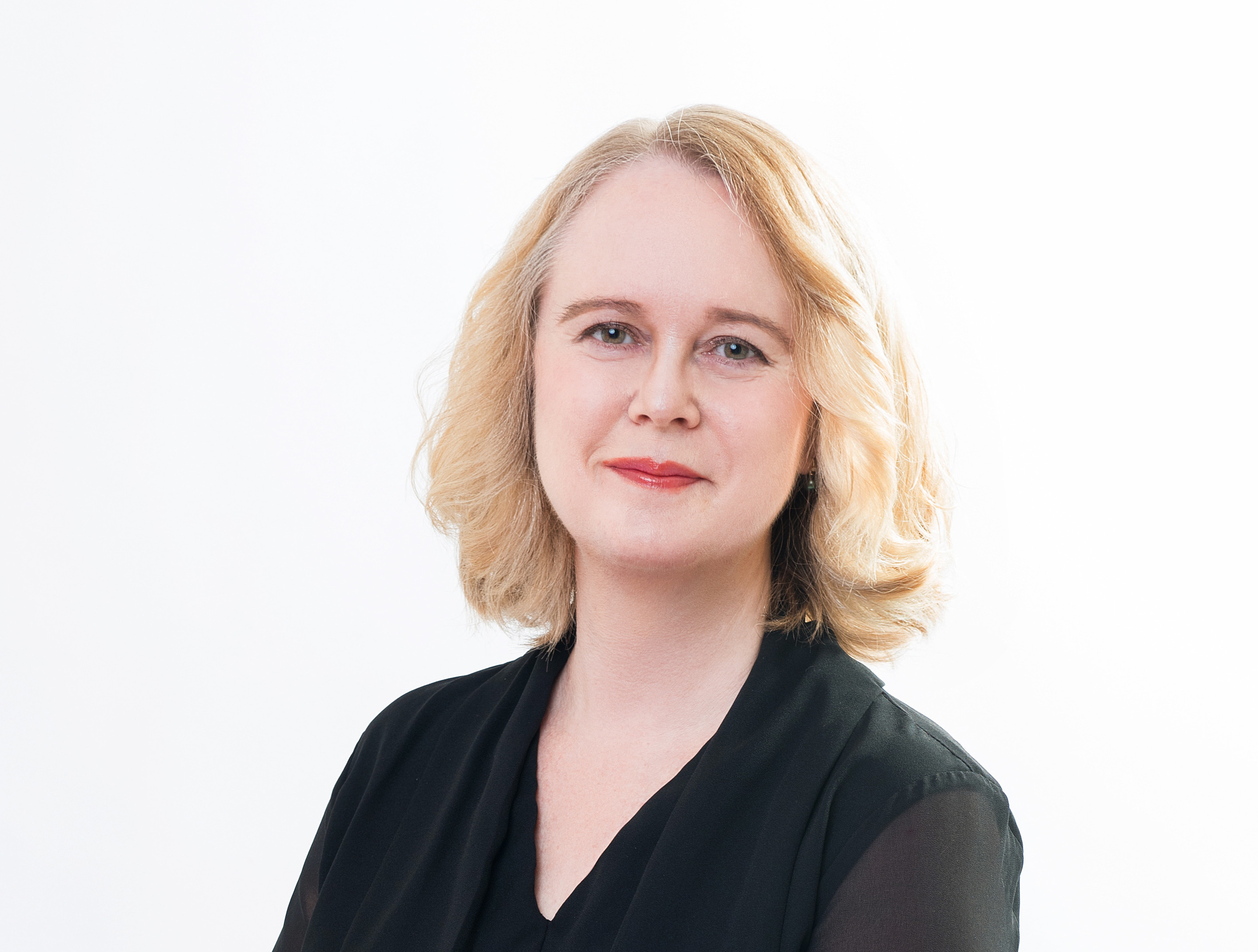
Fritha Jameson: Shenzhen, China
What is the current situation in your country regarding the COVID-19 Pandemic?
I'm based in China and after a week's holiday in New Zealand in January returned to find the country in varying degrees of lockdown. Compounds in Shenzhen had special fences erected and we were temperature checked in and out of our own compound, and eventually, QR codes were developed for entry/exit to living areas. Shops closed and the supermarket was on restricted hours. However, couriers and essential services operated as normal including street cleaners. As I write this, it's been 86 days since returning. Shenzhen was not in lockdown like Wuhan. It was all voluntary. The reopening of Shenzhen started slowly about 5 or so weeks ago, to the point that everything is nearly normal - albeit with QR code and temperature checking the norm. Where I work, today, the oldest grade level of students returned to campus for 1/2 days and special protocols for health and safety. We continue to live stream for the students and staff who are not located in China - the closure of schools happened during the Chinese New Year break when the entire school community was scattered.
How long do you expect to stay in this situation?
I can see this phase continuing in China until October at least. I do not see it returning to what it was before - I would say that the situation is a transition. We are now waiting for the rest of the planet to catch up to where we are with the re-opening of things.
As a composer, how have you been responding to your current situation?
As a composer, sadly I had not had the thinking and creative time I see idealized online. With a globally scattered staff and student body, it has meant that my job was in crisis control then continual response and preemptive measures nearly 24 hours a day at first. Now 13 weeks in it has settled in a new normal where routines are uneasily settled ready for another change at any time. My personal writing has lapsed. However, the situation has enabled an acceptance to interconnect more easily. Doors have opened more readily. A student of mine researching for her Extended Essay (International Baccalaureate) was able to connect with musicians who might have earlier been too busy to share their expertise. Other students have had more blocked time to work on their compositions and dig deeper rather than been distracted by a flitting daily timetable. That has been a joy to be a part of.
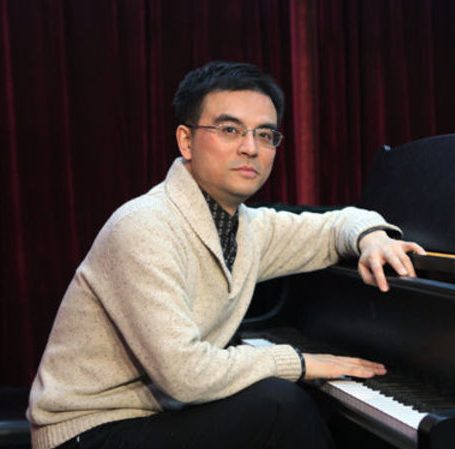
Gao Ping: Chengdu, China
What is the current situation in your country regarding the COVID-19 Pandemic?
For nearly 3 months, I have been in the city of Chengdu, mostly staying at home. The current situation is much more relaxed than a month ago. Life resumes much of its normality. Most people are back to work. Shops, restaurants, even bars have opened since 2 weeks ago. There are also many people, like me, working and teaching online at home. The deserted streets are now bustling again. I can see people, especially younger people, are so impatient for gathering and some fun at last. On the other hand, we are still constantly surrounded by worrying news and rumours… No one is certain about anything and danger seems still lurking somewhere…Masks still stay as the all-conforming fashion.
How long do you expect to stay in this situation?
Most cities, including Wuhan, the epicentre of the pandemic, have gradually relaxed their lockdown. We do get a check of temperature when coming back to the community block at the gate. But other than that, the restriction is very much reduced.
Schools remain largely closed, though there is some start to open, but not yet on the tertiary level. No news from my institution as to how long this current situation will last. Universities in Beijing is likely to be the last to open. Strangely, my students seem more productive (in composition) than pre-pandemic days.
As a composer, how have you been responding to your current situation?
The last months, I, probably like most others, have felt powerless. But it was a period that simply by staying home, one became ‘useful’. I myself have composed sporadically throughout this period, not for any specific project or commission, but simply as a way to spend time with something expressive and meaningful. As a result of the shock from the tragic events that led to Dr Li Wenliang’s death on Feb. 6th, I started on a piece for violin and piano the next morning in memory of this ‘whistleblower’ who brought out such overwhelming grief and indignation in the nation. The piece, titled Bitter Cold Night, was later recorded by my musician friends separately at home, using smartphones, then mixed by a recording engineer friend. There were also several piano pieces which, though not linked to any actual events, nevertheless stay intimately attached to the unsettling time in my own mind. In composing these pieces, I made this life of “house arrest” bearable, and perhaps even memorable. But I look forward to the truly free days to come.
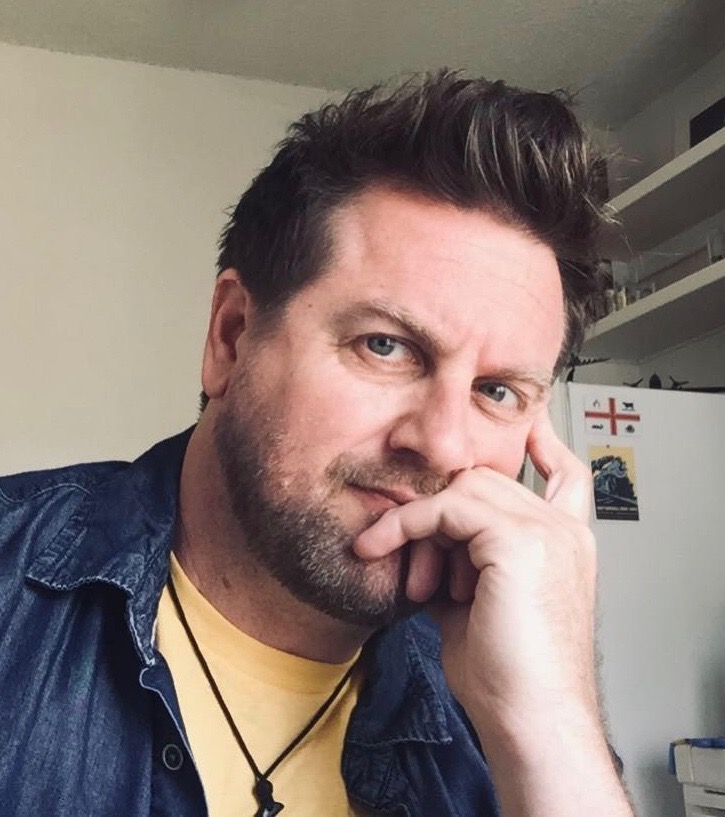
Mark Smythe: Los Angeles, USA
What is the current situation in your country regarding the COVID-19 Pandemic?
In stark contrast to back home, the United States has shown the world how NOT to handle a global pandemic. Trumpa Loompa’s leadership has been…well. Comparing him to Jacinda is like placing a stick figure drawing next to the Mona Lisa. Fortunately for me, California Governor Gavin Newsom and LA Mayor Eric Garcetti were both away ahead of the rest of the country with curve-flattening plans. And they’ll open things up on their terms.
I live in Thai Town, a unique suburb of just 6 blocks nestled between Hollywood and Los Feliz. There’s a pink trumpet tree with spring blossom outside my office window, the plethora of Thai restaurants within walking distance are still open for takeout (pardon the Americanism), and the one coffee shop still operating is 30 seconds from my front door…so yeah, could be worse. That said, I’m mindful of the numbers - Thai Town has 11 confirmed cases, Hollywood 131 and Los Feliz 32. LA County is approaching 14,000 cases, with just over 600 deaths. I’m not taking any chances. Most people in my neighbourhood wear a mask when outside, and respect personal space when walking the leafy streets. The lack of traffic is a welcome change, and the skies of LA are uncommonly clear.
How long do you expect to stay in this situation?
The current “Safer at Home” order (in place since March 19) has been extended to May 15. I think even if/when restrictions are eased, many Angelenos will remain cautious. If this timeline doesn’t change, I plan to go canyoneering with my adventure crew on the 16th. Canyoneering = rappelling down waterfalls, which may not sound cautious at all, but we’re a small group and only go where permit-less mortals fear to tread. We’ll be well clear of the throngs of unleashed weekend hikers.
As a composer, how have you been responding to your current situation?
With a surprisingly heavy workload! I have a ‘side job’ as COO of the Society of Composers & Lyricists. This time of year I’m usually hosting member screenings of Emmy-eligible TV shows, but since lockdown, I’ve been planning and testing online versions of composer Q&As, for a much-altered virtual awards season calendar. I’ve also sourced and listed nearly 50 National / Regional COVID-19 financial and mental health resources, specific to composers and songwriters who may need assistance. These curated lists are available to the SCL’s 1700 members, and I’m updating every week…and need to grab a moment to apply for some of them myself, as a measure of self-security.
My own music projects, when I get to them, include a suite of themes for a horror-themed reality show and adding guitar/bass parts to three different collaborations - all conceived in the home studio here, which is nothing new. Just yesterday I spoke with (Zoomed) harpist Helen Webby re: composing a long-overdue sequel to Moto Mojo - a unique piece that Radio NZ Concert FM play every week, which is heartening on so many levels during this extraordinary time.
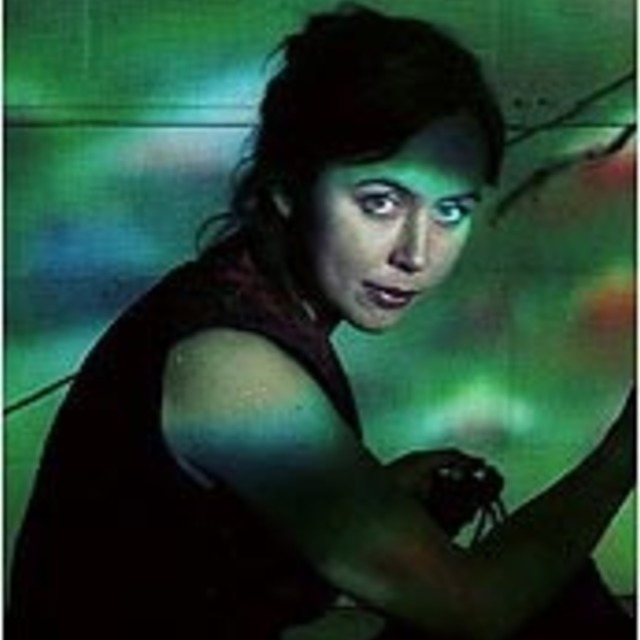
Miriama Young: fled to Nelson (lives in Melbourne, Australia)
What is the current situation in your country regarding the COVID-19 Pandemic?
Although based in Melbourne, I fled to rural Nelson just before New Zealand locked down to level four. It's been a nurturing place to bunker during this surreal time. With the entire world suffering, I'm grateful for every fantail that visits for a chat, every feijoa I bite into, and the crunching sound of stones underfoot during my long walks at Ruby Bay.
I am able to teach at the University of Melbourne remotely for the moment, rural broadband withstanding!
How long do you expect to stay in this situation?
I suspect that we may all be wrestling with this situation for longer than we would like.
As a composer, how have you been responding to your current situation?
A concert scheduled for Melbourne Recital Centre, with Syzygy Ensemble, is currently being re-framed. We anticipate that this concert will happen virtually, and as such, we plan to incorporate interactive element so that the audience can contribute and improvise on the soundscape element from their home during the live performance. This is an attempt to bring the static streamed music experience to life, making new use of the unique possibilities that virtual streaming enables.
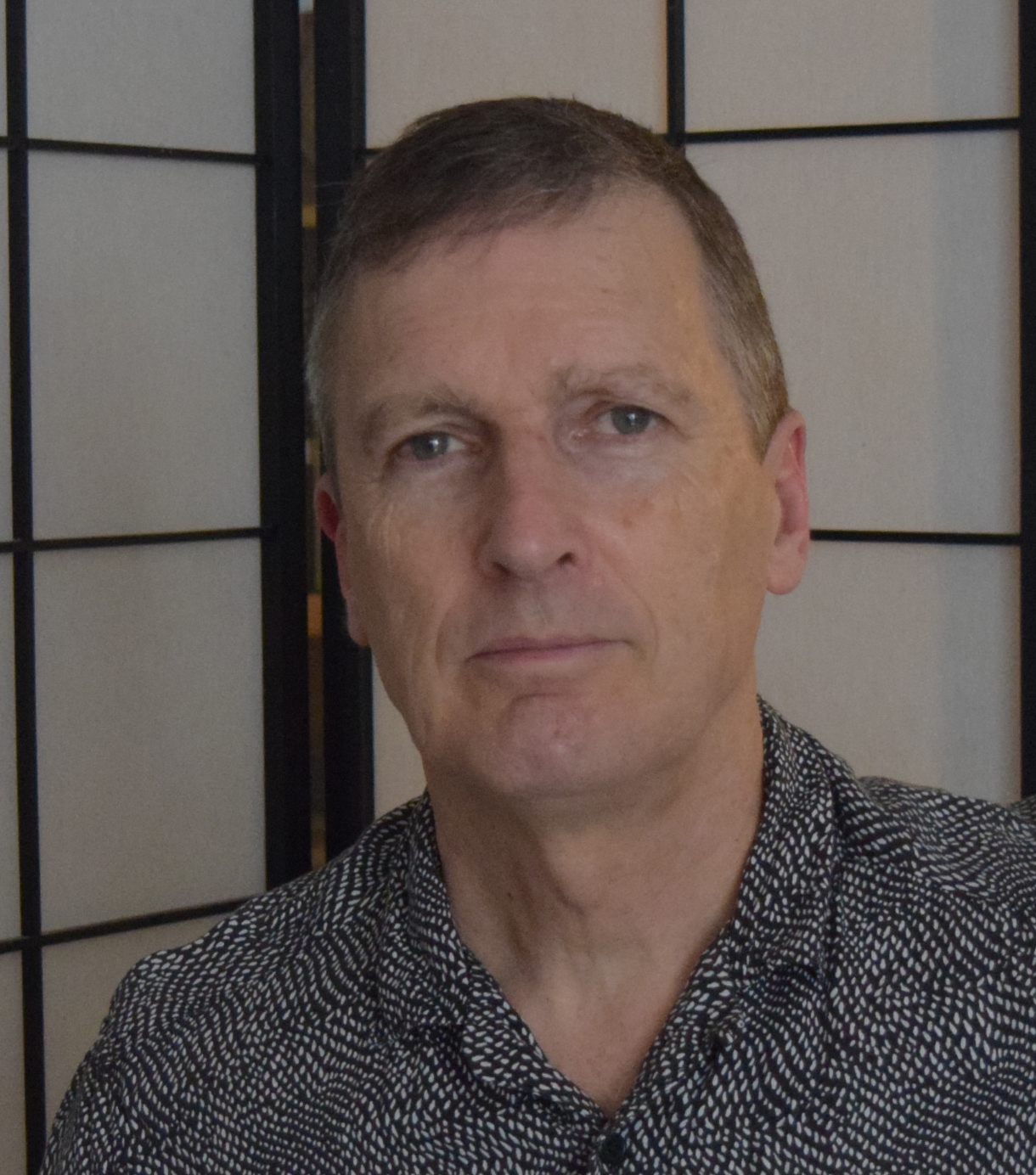
Nigel Keay: Paris, France
What is the current situation in your country regarding the COVID-19 Pandemic?
France went into confinement at midday Tuesday 17th March and this was announced a few days before. The details were fine-tuned quite quickly, remaining essentially the same over this first month. If we leave home we must carry a signed form downloaded from a government website, ticking one of the authorised options which include shopping for food and medical visits. The form must state the date and time, and non-compliance can result in a fine. Exercise is permitted within a 1km radius of the place of residence up to one hour per day. Parks are closed. In the last few days, it’s been permitted to show an electronic version of the form but initially, it had to be a paper version. One positive thing is that the air is now much clearer here. In my vicinity, the population appears to be respecting the lockdown conditions.
How long do you expect to stay in this situation?
This current state of confinement is scheduled to last until 11th May, with the President announcing that primary and secondary schools would reopen after this date, but not tertiary institutions. He also mentioned that restaurants, cafés, theatres, concert halls etc. would remain closed after this date, and that cultural events such as large festivals and other large public events would not be permitted before mid-July. On Thursday the Minister of Culture announced that small festivals could take place after the 11th May, so this has caused confusion.
As a composer, how have you been responding to your current situation?
In this first month of lockdown I’ve been working on some older works. The “Save RNZ Concert” campaign had a part to play in this. In writing an exposé for that facebook group on my various works that had been recorded and broadcast, I needed to look back through these older scores and their surrounding performance details. With my attention turned to these earlier pieces, the first on the list ended up being my Brass Trio of 1988. Extensive revisions are not something I normally do, especially of older material, as I find ideas evolve too much over time, but I found myself transforming virtually half of one of the movements, leaving untouched what I felt worked well. I made some small adjustments to the other movements, so overall this turned out to be a productive result from a short burst of creative activity.
I’d had plans to begin a completely fresh project around this time, but at first the distraction of following current events seemed too great to begin anything new, even though I realised I had an abundance of time to spend on it. Lack of ready access to performers and the uncertainty of the situation seemed somehow demotivating, especially living in an epicentre of Covid-19 cases. The other concentration of Covid-19 cases was in the Alsace region.
My most recent projects have revolved around recording new works of mine. In December 2019 I recorded my Duo for Flute and Viola “Labyrinthe” with flutist Tessa Brinckman. I played the viola part myself. A little before that I completed my first work with renowned saxophonist Daniel Kientzy. Daniel’s concept was to create a “phonostück”, a work destined primarily for recorded media, notably his internet radio (http://kientzy.pro/radio). This first work had a mellotron in it – Daniel had the instrument on loan for a couple of months. The realization of a second phonostück work is currently underway, scored for theremin, ondes Martenot, Farfisa organ, clarinet, saxophone(s), viola and bass guitar. In light of the current situation, it seems that this collaboration, centered on Daniel’s recording studio, came along at a good moment.
This summer was the first time in several years that I didn’t have a work in one of the French summer festivals, so luckily I haven’t been afflicted by cancellations of live performances. Last summer I had my Serenade for Strings programmed in the Musique-en-Graves Festival. The organisers had downloaded the performing materials from my website so I discovered about the concert from the publicity that started appearing. This was, yet again, a reminder of the need to keep my repertoire on my website fully ready for any performance opportunities, so I’ve been spending time working on parts for another couple of older pieces. In other words, it’s seemed a good moment to do some tasks that have stayed in the background through normal times.
Apart from my music activities, I have a longstanding interest in Hapkido, a Korean martial art that I began in New Zealand in 1981. It was sad to see the regular classes stop a few weeks ago as there’s a lot of the programme that requires a training partner, however, there are many things that I can do individually, in the meantime, so I’ve made a daily routine of these, determined to stay as fit and healthy as I can.
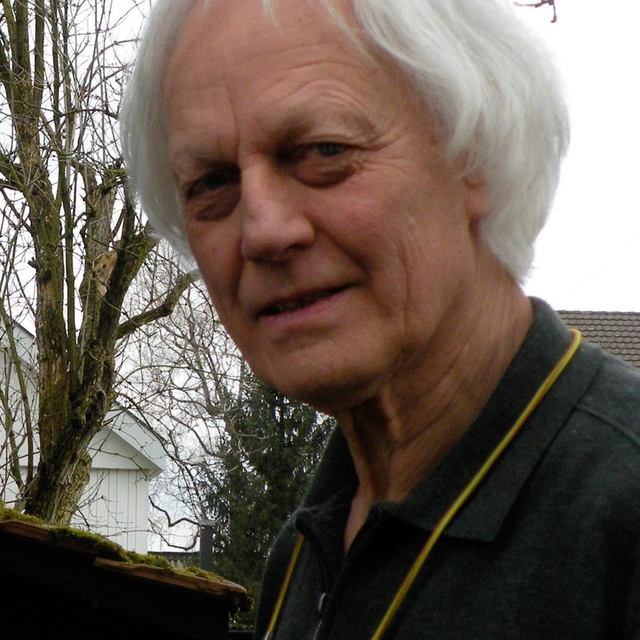
Kit Powell: Switzerland
What is the current situation in your country regarding the COVID-19 Pandemic?
Switzerland is also in “Lockdown" (that word has already entered the local language). From what I hear from NZ friends and newspaper reports, the situation here is very similar to what you are experiencing. The difference is, of course, that the number of infections and of deaths (now ca. 1000) is more dramatic. That’s partly because there are about twice as many people here living in an area of one fifth the size of New Zealand, but also because the borders are much more difficult to control. We live in Eglisau (on the Rhine) quite close to the German border. Although the borders are closed, there are many Germans who work in Switzerland in what are described as essential services and so there is still significant movement back and forth. The same is true in Geneva and especially in Ticino (the Italian speaking Canton). This latter's border is with Lombardy, the hardest-hit province of Italy and accordingly, Ticino has suffered more than the rest of Switzerland.
As I write we have just been visited by our son Philip (you may have seen him last year when he represented me at the NZ Composer Sessions) with several huge bags of provisions for the next week. He has been doing this for 4 weeks now: he deposits the bags at the door, then drinks a cup of tea in the garden or on the verandah and we sit somewhat removed, according to the new rules for “Social Distancing” (another expression which has entered German!) and exchange the latest news as best we can.
How long do you expect to stay in this situation?
We are, like you, having to make do without concerts in concert halls, and (as I see in the SOUNZ program) we are also being offered performances on line. Hard times for professional musicians, but the government has offered help. Also, the schools and universities are closed, many with internet teaching programs and class sessions on “Zoom”. Yesterday the government gave the first announcement about how long this is to continue, a three-phase reopening starting at the end of the month: first hairdressers and others who have to make bodily contact (all with masks and gloves, etc.) plus garden centres, then in phase two other shops and in phase three the schools will start again. But restaurants and concerts? No mention of these yet. Up till now, there has been general approval of the rules dictated by the government, but gradually a noticeable unrest is growing in the commercial sector. Some have even dared suggest that a few deaths of old people is better than a collapse of the economy. Whether the situation is really so serious? — not as far as I can see.
There are, however, some positive aspects of the Lockdown. The air is much cleaner. When I look down onto the Rhine bridge (which at normal times is crossed per day by more vehicles than go through the Gotthard tunnel) I see about 5 or 10 cars per minute. The same with the air traffic. Zurich’s hub is only 20 minutes from here and normally we see a constant stream of planes lining up to land. That has all changed. The Swiss Flotte is sitting on the tarmac waiting for better times. We, of course, hope that these times will not be a repetition of the old ones, that people will curb their impulses to fly away on holiday three or four times a year, that business people and academics will have learned that video conferences are possible and that the poor climate can benefit from this forced grounding. Unfortunately, though, the climate cannot change as rapidly as the air can clean itself. The days are still too hot for this time of year: April which should be a wet month has so far had no rain at all and, according to the meteorologists, none is in sight.
As a composer, how have you been responding to your current situation?
As you can imagine, for an octogenarian composer all this makes little or no change to his daily life. I continue revising works which need revision. And since I haven’t written a note with a pen or a pencil for the last 30 years, the worst that could happen would be a computer crash. Normally Philip helps in such situations too, but that could be tricky at the moment.
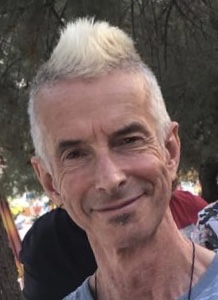
Richard Bolley: London, England
What is the current situation in your country regarding the COVID-19 Pandemic?
I live in Brixton, south London, in what is normally a thriving and ‘busy-on-the-streets’ multicultural community. Over the course of the last two months, this has been transformed in many palpable ways: sonically, for instance, I am not now awoken by early morning flights from Asia looming down to land at Heathrow, but by birdsong; there is still traffic hum from the nearby normally highly-polluted Brixton Road, but it is subdued, and I find myself sitting for minutes at a stretch on sunny afternoons listening to the sound of the breeze playing through the trees and shrubs in the pre-school gardens next door.
The situation here is pretty terrible in terms of the statistics of human devastation, and the governmental response has been alarmingly unrehearsed, slow and uncoordinated. Also after months of preoccupation with all the ins and outs of Brexit, everyone woke up to realize that the world was actually a much smaller place in which our post-imperial concerns were anal in the extreme and had completely ignored wider questions about the planet and the proximity and interlinking of all its peoples.
I had been about to return to New Zealand for several months in February 2020 after completion of my PhD in Composition at Goldsmiths, University of London. But, after four postponements of dates and plans, I finally decided that international travel was too risky and too potentially stressful and the costs of maintaining a household here during a potentially lengthy stay in my other home country would be prohibitive. So I decided to stay put – and take as much care as possible. And thus I started what one of my Buddhist friends has called ‘spatial solidarity’ practice way back in February.
How long do you expect to stay in this situation?
The world is a changed place and there will be many things that won’t be the same again, whether for better or worse. I am preparing for several waves of COVID-19 and, possibly, for waves of other contagions afterwards. However, I don’t want this to appear only ‘doom and gloom’. I think that some kind of wake-up call has long been needed, horrific as this one will be in terms of the cost of human lives and suffering. So I am expecting some degree of containment and restriction to stay in operation here for as much as a year, and for there to be lasting impacts beyond that.
As a composer, how have you been responding to your current situation?
After completion of the PhD I was intending a time of withdrawal – even solitary retreat whilst in New Zealand – to ponder new directions. Spending almost ten years completing a single cycle of pieces (Travels with Alex) with a specific (East-West) transcultural focus has been a telling experience, but probably also involved my getting out of touch with many other developments – especially as I was also working full-time as a manager whilst completing the PhD. So, I was hoping to explore new ventures, make new contacts, reach out to and for performance possibilities with new groups. As a largely acoustic, ‘dots-on-the-page’ composer, I am suddenly in a completely unexpected situation. A quandary. I have unearthed some old sketches and extemporised with taking these in new directions; I am exploring two new composition ideas (one for an ensemble piece, and another for a song cycle) – but I am also taking time to contemplate with reading, daily meditation sessions, and resuming the running I used to love so much in the past (I regularly ran round Western Springs when I lived in Point Chev).
After so many busy years of external work and a focussed composition project, it is actually good to just hang in the spaces a bit more – and also allow myself to work with the inevitable fear, anxiety, concern, alarm that the current situation inevitably provokes.
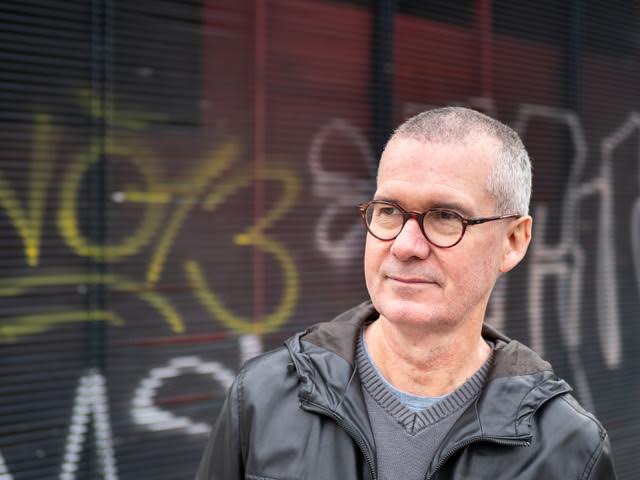
Neville Hall: Slovenia
What is the current situation in your country regarding the COVID-19 Pandemic?
The first case of COVID-19 in Slovenia was reported on 4 March. The infected person had been on holiday in Morocco and had travelled back through Northern Italy. Slovenia shares its western border with Northern Italy, so we had been expecting COVID-19 to enter the country. In fact, it is a wonder there were no cases sooner. Moderate measures limiting public gathering were soon introduced and an epidemic was declared on 12 March, at which point there were 131 confirmed cases in Slovenia. The first significant measure came into force on 16 March, when all schools and non-essential shops closed and public transport was suspended. The official lockdown started on 20 March, by which time most of us were already following the guidelines for social distancing, including staying at home. Of course, essential movement outside home is permitted, including outdoor exercise in the nearest public park. A restriction preventing travel outside one’s municipality of residence was later added.
The population has been very compliant with restrictions in Slovenia. Consequently, the measures have been effective and the horrific Italian scenario has been avoided. New cases of COVID-19 peaked on 26 March, when 70 new cases were reported. At the time of writing, the most recent figure was 21 new cases (on 15 April), bringing the total number of confirmed cases to 1,268 (in a population of around two million). Sadly, there have been 61 deaths in Slovenia due to COVID-19 so far, mainly among elderly people with pre-existing medical conditions.
How long do you expect to stay in this situation?
The first easing of measures will take place in the coming weekend, on 18 April, but the initial changes are fairly minor. Individual sports activities will be permitted, and greater movement between municipalities will be allowed in specific cases, such as for those who own property outside their municipality of residence. Apparently, smaller shops and certain non-essential services will soon start operating and there is some talk of schools being reopened in mid-May, although none of this is official policy yet.
Concert life in Slovenia has, of course, come to a halt, which has affected composers. Large gatherings of people will probably be limited long after the general lookdown is eased, so it may be some time before things get back to normal. More worrying is how cultural institutions will fare in the inevitable economic contraction that will follow the virus. As well as losing their income from public performances, institutions such as the Slovenian Philharmonic are likely to face reduced public finding, which will certainly impact composers. The execution of several festivals of new music later this year is also in question.
As a composer, how have you been responding to your current situation?
As a composer, several projects I’m involved in have been delayed due to the virus. However, composing is by nature a solitary activity that is not affected by social distancing, so I am still able to work on the pieces in progress. In fact, there are fewer interruptions and distractions than usual.
I’m full of admiration for the way New Zealand has responded to the crisis. Strict but sensible measures were introduced very early on and have obviously been very effective. Like Slovenia, you have benefited from the disastrous experiences of the countries that were affected first, such as Italy. As usual, New Zealand has shown itself to be a country with a culture of kindness, caring and social responsibility. It is bad luck that the virus has coincided with two major new music events in New Zealand: the ISCM World New Music Days and the Asian Composers League Festival. I can only imagine the amount of work that has already gone into organising these events. Still, I’m glad to see that both festivals should still take place, having been postponed to 2022.
I wish everyone in New Zealand, especially composers and other friends of SOUNZ, a swift recovery from the COVID-19 turbulence.

Gemma Peacocke: isolating on the Banks Peninsula (lives in Brooklyn, New York, USA)
What is the current situation in your country regarding the COVID-19 Pandemic?
I live in Bed-Stuy in Brooklyn, New York. It's a historically African American neighbourhood and more recently it's become home to a growing Hasidic Jewish population. Bed-Stuy is a poor and under-served community in terms of health facilities and other services; consequently, it's one of the hardest-hit neighbourhoods in the city. My husband and I both got sick towards the end of February but it was before testing was available so we don't know whether we had COVID-19 or not. By the middle of March, there were already a lot more ambulance sirens than normal and people were clearing out the shelves of pharmacies and supermarkets. I'm doing a PhD at Princeton and in March the campus was closed and our classes were shifted online, and one by one, all of my concerts for the rest of the year were postponed or cancelled. It was difficult having to tell performers and collaborators that their performances wouldn't happen.
We saw a couple of angry flareups in a pharmacy because of shortages, and we realised that flights would start to be curtailed and that if one of our family members got sick in New Zealand we wouldn't be able to come home. We made the decision to come back to New Zealand in mid-March and we've been staying alone at my parents-in-law's farmhouse on the Banks Peninsula since 17 March. Our neighbours here have been really kind – they've dropped off food and chatted over the fence. The nearest supermarket is the Four Square 25 minutes drive away in Akaroa so we've planted three vege gardens and we have a woodpile for the winter. I get up at 5am on Tuesday mornings, light the fire, and Zoom into a lecture (though the internet is a bit patchy).
How long do you expect to stay in this situation?
It's the not knowing that's difficult for everyone. I can't imagine that we'll be able to go back to New York until at least June, and I don't know what life in the city will look like after the peak. We know a lot of people who've gotten sick, and one of our friends has the virus right now and he's in his apartment on his own. A friend of mine is staying in our apartment and looking after our dog. She had to go out last week and she told me that she'd seen 13 ambulances during her 10-minute drive. It feels very strange to have uprooted so quickly and to be isolated in the relative calm and safety of the Banks Peninsula.
As a composer, how have you been responding to your current situation?
All of my concerts this year have now been postponed or cancelled, including a year-long artist residency that my composer collective, Kinds of Kings, had worked incredibly hard on. It's unmooring, but it's nothing compared to the situation faced by medical workers and people who are coping with health problems and sick family members.
In the first couple of weeks of being back in New Zealand, I suddenly had so much time on my hands that I finished off the two big pieces on which I'd been working. One is a piece about unassuageable homesickness; the idea that even when you return home, you cannot get back what you have left behind because life has moved on in your absence. It was a strange experience to finish this piece back here in New Zealand – a piece about longing for home – that I'd been writing in Princeton and Brooklyn.
I know many composers and artists are finding it impossible to make new work right now. For me, I'm finding comfort in being able to channel my anxiety into composing and trying to keep my writing routine. It's helpful for me to look at the horizon and to be able to imagine a time when the world has begun to recover and when we can be with friends and family again.
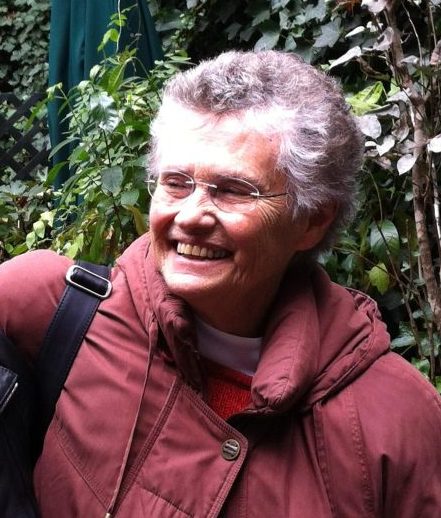
Annea Lockwood: Hudson River Valley, Westchester County, USA
What is the current situation in your country regarding the COVID-19 Pandemic?
Social distancing and not yet compulsory mask-wearing when out. I am doing it anyway, as are others, but not yet as many as I would expect so I go out as little as possible. The music community is responding with all sorts of online performances, which are beautiful. A network of regular phone/Skype/Zoom calls is forming and is very helpful, feels like great mutual support.
How long do you expect to stay in this situation?
At least until the summer and possibly longer.
As a composer, how have you been responding to your current situation?
I am still grieving the death of my spouse, Ruth Anderson, and don’t seem able to compose at this time.
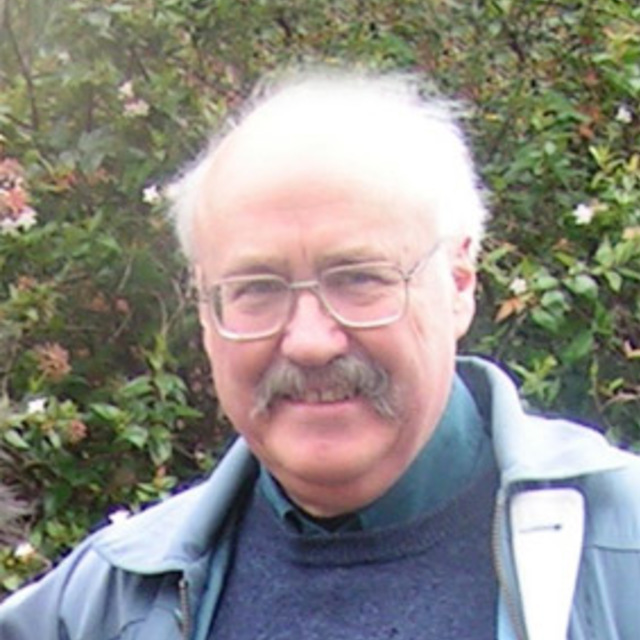
Lyell Cresswell: stranded in Picton (lives in Edinburgh, Scotland, UK)
What is the current situation in your country regarding the COVID-19 Pandemic?
We are still in NZ. We arrived only just before it all went wrong, and our whole trip has been disrupted. I have not been able to do many of the things I planned to do, or catch up with many friends. Our flights back have been suspended and we are staying with Catherine's sister in Whatamango Bay, near Picton.
This is a lovely place to be confined to our 'bubble', but I would like to get back to work with all the normal resources to hand.
It is good to be here in NZ with a sensible government and a great prime minister, rather than in the UK with its current bumbling and clueless government.
How long do you expect to stay in this situation?
I don't know, but for some time yet.
As a composer, how have you been responding to your current situation?
For now, I am enjoying working with pencil and paper once again, and letting the computer have a wee rest. It's interesting going back to working the way we used to, and I wonder if it will provoke any changes in my work.
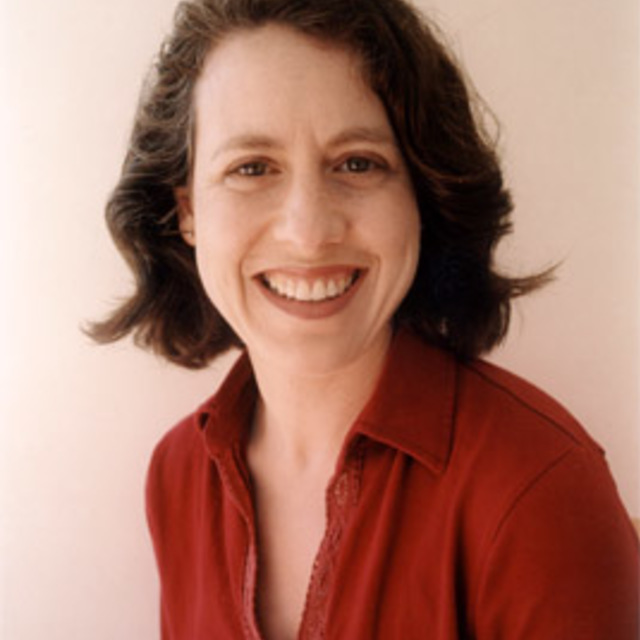
Juliet Palmer: Toronto, Canada
What is the current situation in your country regarding the COVID-19 Pandemic?
Canada is on lockdown – anyone who has been exposed to the virus, has returned from overseas travel, is 70 years old or over, or is symptomatic, is in strict self-isolation. Each province has slightly different rules, but in Ontario right now, you may only leave your house for essential trips and preferably only once a week. People are encouraged to go for a walk, a run, or a bike ride to stay fit and healthy, but must observe physical distancing protocols. Public playgrounds, schools, libraries, park amenities and non-essential businesses are all closed and by-law enforcement officers have been issuing warnings and fines to people who fail to observe physical distancing in public spaces.
Our local community is responding with grassroots support, with neighbour to neighbour networks springing up online to help people access resources and help one another. Landlords are not allowed to evict tenants at this time and there is a growing movement to forgive or at least postpone rent. Mortgage payments are deferred. The government has announced the Canadian Emergency Relief Benefit which most gig workers – including wage and contract workers in the arts community – will be eligible for. The CERB is worth $2,000 per month for up to 3 months. There are various other supports for artists — from a Covid-19 relief campaign by the Toronto Arts Foundation to already-existing foundations which support artists in crisis, such as the Unison Fund. Many surveys are circulating to track the impact on artists – from arts councils, the federal government and non-profits, for example I Lost My Gig Canada.
How long do you expect to stay in this situation?
How long the lockdown remains in place is a guessing game – the situation is being reviewed every two weeks. The Canada Council for the Arts has announced it is not funding travel before July 31, 2020. This gives a hint of how long we may be avoiding large gatherings and travel. The economic and cultural impact will last months into the future – if not years.
As a composer, how have you been responding to your current situation?
I'm completing a new work for youth choir and early instruments. The premiere has been postponed till next season, but I'm working to my original deadline. After that I'll be figuring out how to adapt a large outdoor community work — The Homing Project — slated to take place this summer at a re-wilded brick quarry that is now, of course, shut down for public programming. We're shifting to online, interactive, and/or solitary outdoor modes. It's a challenge as there are now so many online artistic projects – both inviting participation and offering content. I sense that people are already tiring of the virtual substitute, so I'm hoping that our redesigned project will invite people to turn off their screens, reflect and reconnect with their own creativity, sharing their discoveries with the artistic team. Once this is all over, we're hoping to have amassed an archive of lived experience of this strange time — images, text, sound, and movement.
In terms of performances, I've lost two orchestral performances for March and April. The first was the cancellation of the premiere of a new orchestral work fire break on March 13. This was a huge disappointment — more poignant as the announcement was made the day before the concert to the assembled musicians, right before rehearsal was about to begin. All those musicians ready to play, with music on their stands and the fabulous New Zealand conductor Gemma New excited to begin work! The Victoria Symphony has also cancelled their performance of Swerve on April 25 — on a programme shared with Eve De Castro-Robinson and Leonie Holmes. Sad not to be in such good company, but hopefully this will also be rescheduled in the next season. And, finally, I am part of a collective show in an art museum in Oregon — Every Word Was Once An Animal — which opened on March 7 and then shut down shortly afterwards. Our interactive dance and music performances scheduled for April have been postponed.
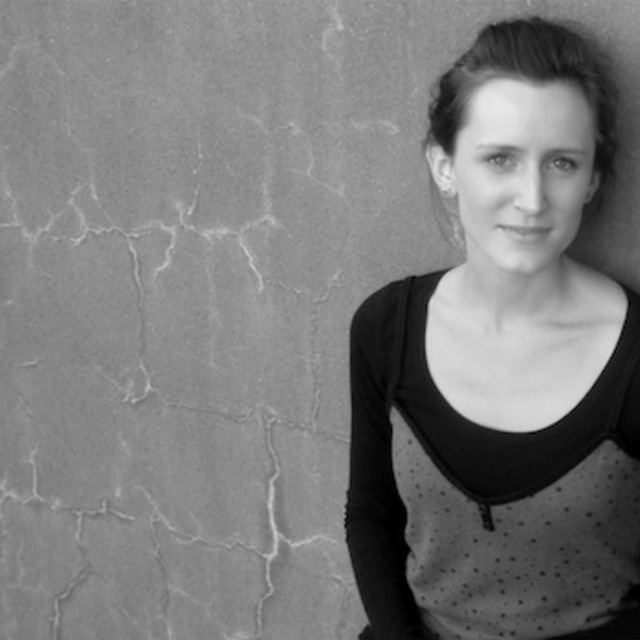
Celeste Oram: San Diego, California
What is the current situation in your country regarding the COVID-19 Pandemic?
I’m currently in San Diego, California. In the absence of coherent federal leadership, California Governor Gavin Newsom announced statewide “shelter-in-place” orders (comparable to NZ’s Level 4) on March 19. Earlier that week, UC San Diego—where I am a doctoral candidate and teaching assistant—announced that all classes would be moving online. The San Diego Women’s Chorus that I work for, and is a significant part of my musical community here, had cancelled rehearsals the weekend before that. But we’ve since been doing biweekly Zoom rehearsals, and even put together this virtual performance!
How long do you expect to stay in this situation?
Too soon to say. The CA-wide “shelter-in-place” is in effect “until further notice”. Pandemic projection-wise, COVID-19 cases are supposed to be at their worst here in late April. UCSD has planned for all of Spring quarter (until mid-June) to be entirely virtual. The next un-cancelled thing “in my diary” (that I would have to leave my house for) is a festival in late July, but the organisers plan to make the call mid-May about whether or not it’s going to be postponed.
As a composer, how have you been responding to your current situation?
So far I don’t think my response “as a composer” has been much different to others’ responses - just trying to get your head around it all, keeping yourself on even keel, checking in with loved ones, and figuring out what “being a good citizen” means now. I am very grateful to be in the fortunate position of being able to keep teaching—albeit online—and most of the composition projects I had lined up are so far still on the table. Plus, a PhD dissertation certainly waits for no pandemic… I’m lucky to be “in a bubble” with four amazing, supportive, generous musician flatmates - we have been mostly keeping out of each other’s hair thanks to carefully arranged practice schedules. But, on the whole, it’s still early days of a wait-and-see kind of situation, isn’t it?
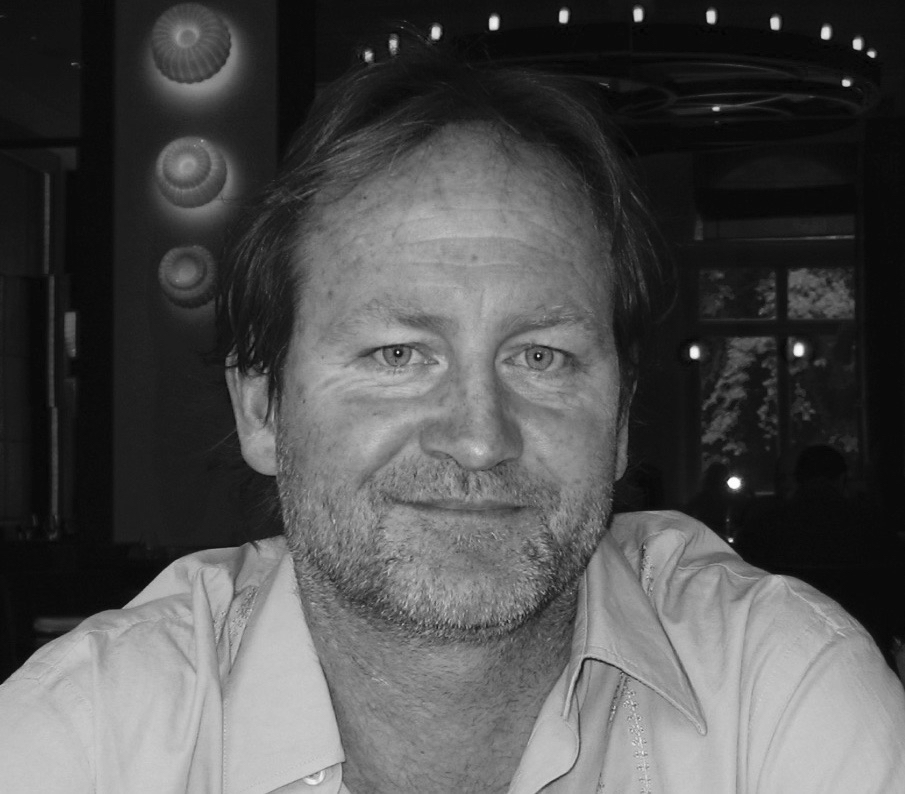
Jeroen Speak: London, England
What is the current situation in your country regarding the COVID-19 Pandemic?
Living in London is still exciting, but currently for all the wrong reasons. There seems to be a fairly relaxed interest in enforcing the lockdown rules and certain members of the public make it all the more likely that a total lockdown might have to be enforced, just the last two days 2 people have died that I knew, one I knew very well.
How long do you expect to stay in this situation?
We don't currently have an exit strategy for the lockdown, but we are anticipating being in it in one form or another for at least 3 months.
As a composer, how have you been responding to your current situation?
Several large scale (at least for me) projects had to be cancelled/delayed as a result of the crisis, and, because of the way I work (internationally) it may very well prove financially prohibitive to put them on in the same contexts that they were originally designed, so, there has been a fair bit of damage-limitation and trying to recover as much of the budget as I can for future possibilities (Mainly lost travel/venue expenses). Aside from that, I've been trying to work on my music, but with an ever-growing awareness that it may be years before any of it can be heard, as groups and orchestras disband, and players and venues close shop, or become re-purposed, I can see that the disruption unfolding could have a much more profound effect than even the 2008 crisis. One other thing this crisis has made me more aware of is how little of the arts money available actually goes into the hands of those artists themselves when I see arts ‘management’ and arts ‘curation’ and arts venues and publishers swallowing huge chunks of arts budgets (globally) I worry that market culture will soon dominate the arts, and I see that reflected already in Arts Council application forms which seem to favour large audiences and audience participation, over almost anything else, I'm left feeling that the only sort of art that is going to survive such filtering is art specifically ‘designed’ for funding. So I am thinking if whether now is the time to start lobbying to try to change the nature and priorities of funding, essentially far too much public money ends up in the hands of the private sector by the very mechanisms that most Arts Councils use to protect themselves, I view the recent strategy from many Arts Councils to make their budgets more accessible to artists as an admission that they know that it's currently not ‘fair’ and that the arts sector is severely impoverished, with most composers in the UK receiving less that £5,000 a year on average (I receive significantly less than this) and there are virtually no composers that actually make a living from composition alone. Filling out an arts council funding application is a form of punishment for most artists I know, and the chances of success have become so minuscule relative to the weeks it takes to put these applications together, that many, including myself, end up just financing it themselves, going without, or peeling the project back almost nothing, yet in the UK they spent the equivalent of 100 years of arts budgets on a boat that is now leaking……. I'm actually optimistic though because I sense that what is happening might be a catalyst for positive change.
